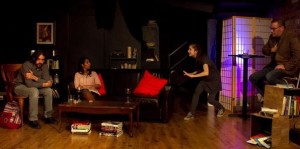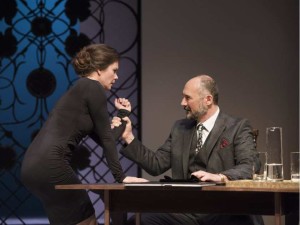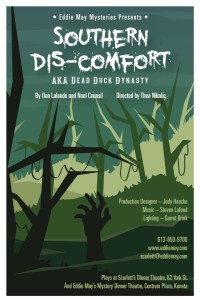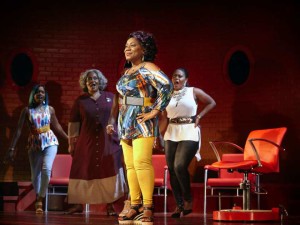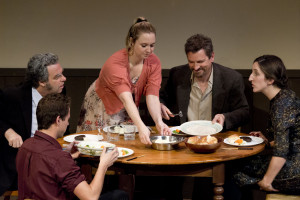Equivocation: Solid production of a problematic play
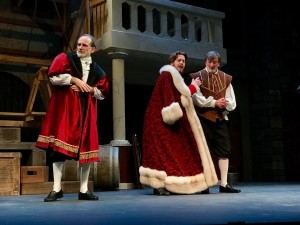
Equivocation by Bill Cain
Kanata Theatre
Directed by Alain Chamsi
Kanata Theatre’s production of Equivocation contains so many fine moments that you’re left saddened by the fact that it ultimately doesn’t work.
Director Alain Chamsi and his colleagues have worked with diligence and discernment to bring shape and substance to a play that uses an imagined crisis in Shakespeare’s life as a platform for an examination of the fragility of truth in a hothouse political climate.
But ultimately the centre does not hold. Playwright Bill Cain, a Jesuit priest whose moonlighting activities including scripting an episode of House of Cards, has solid credentials, and this 2009 play has been acclaimed in many quarters. But it’s overly ambitious in scope, thematically cluttered, structurally uncertain and at times painfully glib and facile.
Furthermore, when it comes to tone, it attempts to have it both ways — expecting the audience to go along with moments of serious drama, which include a pair of gruesome public hangings, while also expecting them to revel in episodes of comic buffoonery as well as bits of more subtle satire. It’s an uneasy fusion. …

